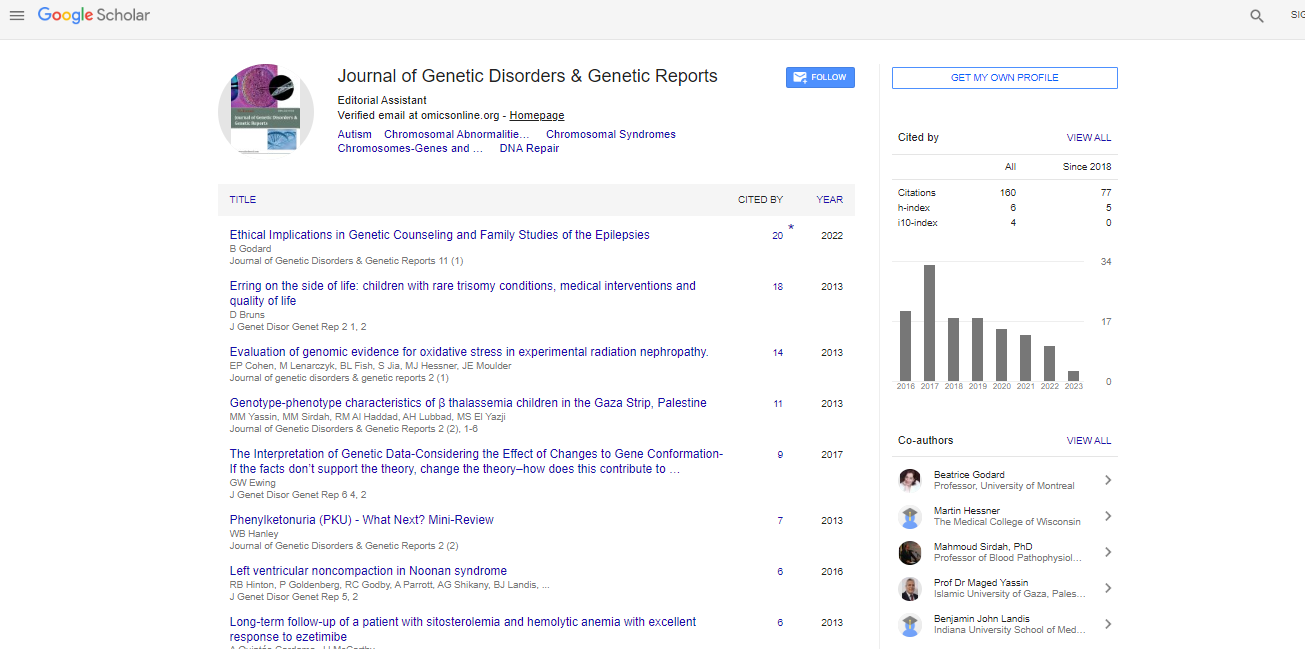Research Article, J Genet Disor Genet Rep Vol: 6 Issue: 2
A Rare Familial Paracentric Inversion in the Long Arm of Chromosome 8: Case Report and Review of the Literature
Kouvidi E1*, Tsarouha H1, Zachaki S1, Mitrakos A1, Sfakianoudis K2, Kanavakis E1 and Mavrou A1
1Genesis Genoma Lab, Genetic Diagnosis, Clinical Genetics & Research,Athens, Greece
2Genesis Athens Clinic, Centre for Human Reproduction, Athens, Greece
*Corresponding Author : Dr. Elisavet Kouvidi
Biologist-Cytogeneticist, Genesis Genoma Lab 302, Kifissias Ave, Chalandri 15232, Attiki, Greece
Tel: +30- 2106803130
Fax: +30-2106894778
E-mail: ekouvidi@hotmail.com
Received: April 16, 2017 Accepted: June 24, 2017 Published: June 30, 2017
Citation: Kouvidi E, Tsarouha H, Zachaki S, Mitrakos A, Sfakianoudis K, et al. (2017) A Rare Familial Paracentric Inversion in the Long Arm of Chromosome 8: Case Report and Review of the Literature. J Genet Disor Genet Rep 6:2.doi: 10.4172/2327-5790.1000152
Abstract
Background/Aim: The incidence of paracentric inversions (PAI)in the general population ranges from 0.09-0.49/1,000 and PAIs involving a relatively short chromosome segment, are generally considered to be harmless. However, PAI carriers have a very low risk to give rise to a viable zygote (3.8%).To present a rare case of a healthy individual, carrier of an 8q paracentric inversion.
Methods: A 37-year-old man and his 30-year-old wife were referred for karyotypic analysis due to a previous miscarriage at 33 weeksof gestation. Cytogenetic analysis was performed on peripheralblood lymphocytes by GTG banding. Molecular karyotype analysis performed using Agilent G3 4x180 K CGH+SNP microarray platform.
Results: The wife had a normal karyotype 46,XX but the man’s karyotype was 46,XY,inv(8)(q23.1q24.2). Karyotypic analysis ofhis parents revealed that his mother carried the same inversion.Molecular analysis reported no duplication or loss in or near the inverted region.
Conclusions: Review of the literature revealed the rarity ofchromosome 8 paracentric inversions and showed that although the risk of a carrier to have an abnormal offspring is low, in cases of large inversions or previous abortions prenatal diagnosis should be offered by conventional and molecular cytogenetic techniques.
 Spanish
Spanish  Chinese
Chinese  Russian
Russian  German
German  French
French  Japanese
Japanese  Portuguese
Portuguese  Hindi
Hindi 



